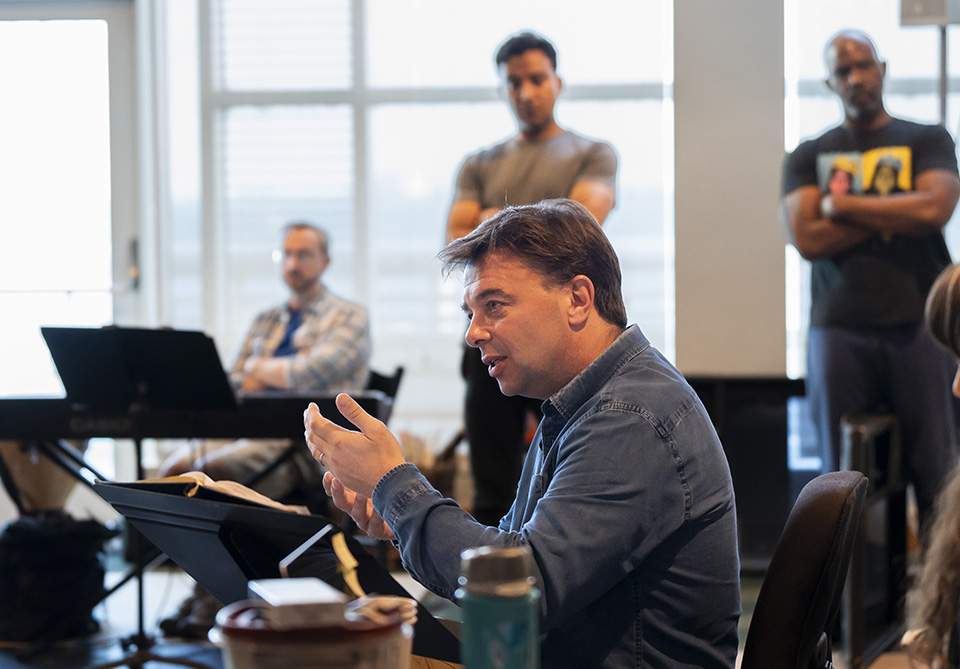Artistic Director Edward Hall discusses his vision for Shakespeare’s Henry V.

How does this play explore the concept of leadership?
Edward Hall: Henry V is a youthful and inexperienced new leader. But he’s spent much of his early years on the backstreets of London so he’s streetwise and tough. He has developed a skill for reading his enemies and discovering betrayal so, in many ways, he has had a good training for his new life as King.
Early on in the play Shakespeare explores how those around Henry underestimate him, mocking his days of misspent youth whilst not believing he is prepared for his newfound responsibilities. They are all wrong. Despite his inexperience, the young Henry is decisive and strong and, as a new leader, takes the responsibilities of his power very seriously.
Shakespeare seemed to understand the realities of combat and his Henry is a survivor. In the chaos of battle, he never loses his decisiveness, and as he fights his way through France he gains a deeper understanding of the meaning of “honor.” He has a huge moment of doubt, though, just before Agincourt, where we meet a young leader wrestling with the loneliness of his position. A leader who feels alone amongst his army. A leader who realizes that his troops will always treat him differently because of his position.
It is endlessly fascinating for a modern audience to be taken into the inner sanctum of power. The Elizabethans clearly loved experiencing it through plays like Henry V, and we continue to consume dramas like The West Wing, Succession, The Crown, and many others. Being in the room when major world changing decisions are made gives us an opportunity to experience how our leaders weigh up issues with their decision making and how much political and personal agendas intermingle.
Henry V doesn’t begin on a battlefield, but rather with a conversation. How does this bring us into the world of the play?
As with a lot of Shakespeare’s plays about war and conflict, the starting point is very murky. In this instance, two high powered clerics are discussing how they’re going to distract Henry, a new king, from visiting upon them a huge taxation bill. So, they offer him a large one off payment to help his war effort and to delay the bill. Henry realizes that Canterbury may be trying to play him and he warns him of the consequences for the thousands of potential victims of this conflict if he gives the wrong advice. It’s an interesting look at the way politics drives decision making and how Henry, as a new leader, deals with advisors around him.
Can you speak to the perspective of this play?
This play embraces all the realities of being a leader in a time of conflict, dealing with the excitement—and the danger—of nationalism. Nationalism can sometimes bind us together, but the side effect of nationalistic energy can also result in brutal, cruel, and deeply destructive wars. Nationalism can be exciting but dangerous and as explored in Henry V, necessary for military success.
If you are inspired by a character like Henry, you might watch the play and think, “What a great leader, what brave soldiers” as Henry and his army prepare themselves to die for their cause, to die for honor. But then we are asked to consider the aftermath and the overall cost relative to any real world gains from victory. That’s why I like the play. It lives in those gray spaces, which is the reality of the world—our world and Shakespeare’s world.
